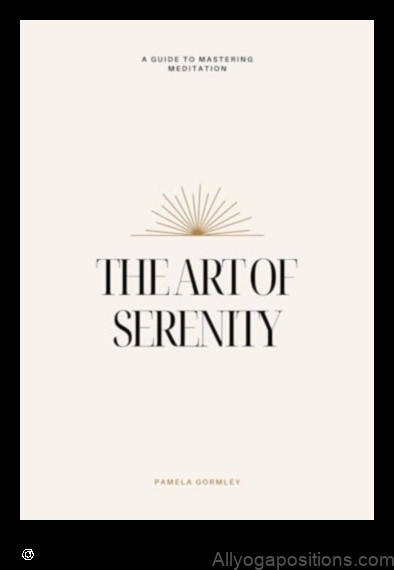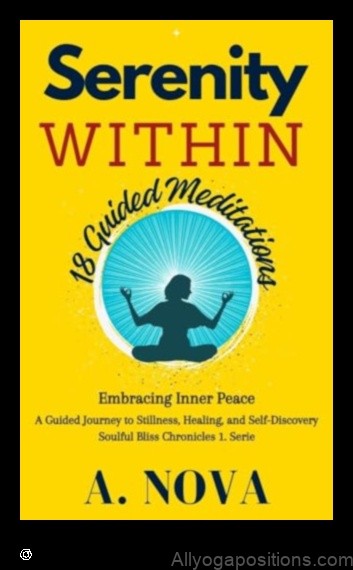
Introduction
Meditation is a practice that has been used for centuries to promote relaxation, stress relief, and spiritual growth. It involves focusing the mind on a single point of attention, such as the breath or a mantra. Meditation can be practiced in a variety of settings, and there are many different techniques that can be used.

History of Meditation
The earliest evidence of meditation dates back to the Indus Valley Civilization, which flourished in what is now Pakistan and northwest India from around 3300 to 1300 BCE. The practice of meditation is also mentioned in the Hindu Vedas, which were composed between 1500 and 500 BCE. In the Buddhist tradition, meditation is one of the three pillars of practice, along with morality and wisdom.
Benefits of Meditation
There are a number of benefits associated with meditation, including:
- Reduced stress and anxiety
- Improved sleep
- Increased focus and concentration
- Improved mood
- Reduced pain
- Enhanced creativity
- Increased spiritual awareness
How to Meditate
There are many different ways to meditate, but the basic steps are as follows:
- Find a quiet place where you won’t be disturbed.
- Sit in a comfortable position, either cross-legged on the floor or in a chair with your feet flat on the ground.
- Close your eyes or lower your gaze.
- Focus on your breath. As you breathe in, say to yourself, “I am breathing in.” As you breathe out, say to yourself, “I am breathing out.”
- Continue to focus on your breath for as long as you like. If your mind wanders, gently bring your attention back to your breath.

Different Types of Meditation
There are many different types of meditation, each with its own unique benefits. Some of the most common types of meditation include:
- Mindfulness meditation
- Transcendental meditation
- Vipassana meditation
- Zen meditation
- Kundalini yoga meditation
Common Mistakes in Meditation
There are a few common mistakes that people make when they first start meditating. These include:
- Trying to force yourself to meditate
- Being too hard on yourself
- Expecting too much from meditation
- Getting discouraged if you don’t see results immediately
Meditation for Beginners
If you’re new to meditation, it’s important to start slowly and gradually increase the amount of time you meditate each day. Here are a few tips for beginners:
- Find a time and place where you can meditate without being disturbed.
- Start by meditating for just a few minutes each day.
- Use a guided meditation to help you get started.
- Be patient with yourself and don’t expect to be perfect right away.
Meditation for Advanced Practitioners
As you become more experienced with meditation, you may want to experiment with different techniques and styles. Here are a few tips for advanced practitioners:
- Try meditating in different settings, such as in nature or at a meditation center.
- Meditate with other people to create a sense of community.
- Explore different types of meditation, such as yoga meditation or qigong.
- Use meditation to support your spiritual practice.
Meditation for Health
| Feature | Meditation | Mindfulness | Relaxation | Stress Relief | Spirituality |
|---|---|---|---|---|---|
| Definition | A practice where an individual focuses their attention on a particular object, thought, or activity to achieve a state of calmness | A mental state achieved by focusing one’s awareness on the present moment, while calmly acknowledging and accepting one’s feelings, thoughts, and bodily sensations | The act of reducing tension in your body and mind | The process of reducing the level of stress in your life | The connection of an individual to something greater than themselves, such as the universe or God |
| Benefits | Reduced stress, anxiety, and depression | Improved focus and concentration | Increased calmness and relaxation | Improved sleep | Enhanced creativity and intuition |
| How to Practice | There are many different ways to meditate, but some common practices include: | Sit in a comfortable position, close your eyes, and focus on your breath | Breath deeply and slowly, allowing your body to relax | Bring your attention to any negative thoughts or feelings that arise, and let them go | Focus on your connection to something greater than yourself |
| Risks | There are no known risks associated with meditation | There are no known risks associated with mindfulness | There are no known risks associated with relaxation | There are no known risks associated with stress relief | There are no known risks associated with spirituality |
II. History of Meditation
Meditation has been practiced for thousands of years in various cultures around the world. It is a mind-body practice that involves focusing the attention on a particular object, thought, or activity. Meditation can be used to promote relaxation, reduce stress, improve focus, and enhance spiritual well-being.
The earliest evidence of meditation dates back to the Indus Valley Civilization (3300-1700 BCE) in what is now Pakistan and northwest India. In this ancient culture, meditation was practiced as a way to connect with the divine.
In the 6th century BCE, meditation was introduced to China by the Indian Buddhist monk Bodhidharma. Bodhidharma is credited with founding the Chan school of Buddhism, which later gave rise to Zen Buddhism.
In the 11th century CE, meditation was brought to Japan by the Zen Buddhist monk Eisai. Eisai founded the Rinzai school of Zen Buddhism, which is one of the most popular forms of Zen Buddhism in Japan today.
In the 19th century, meditation was introduced to the West by Swami Vivekananda, a Hindu monk and philosopher. Vivekananda lectured and wrote extensively about meditation, and his teachings helped to popularize meditation in the West.
Today, meditation is practiced by people of all religions and cultures. It is a powerful tool for self-discovery and personal growth.
III. Benefits of Meditation
Meditation has been shown to have a number of benefits for both physical and mental health. Some of the benefits of meditation include:
- Reduced stress and anxiety
- Improved mood and well-being
- Increased focus and concentration
- Improved sleep quality
- Reduced pain
- Enhanced immune function
- Reduced risk of heart disease and stroke
- Improved cognitive function
IV. How to Meditate
Meditation is a practice that has been around for centuries. It is a way to train your mind to focus and be present in the moment. There are many different ways to meditate, but all of them involve quieting your mind and focusing on your breath.
When you meditate, you are essentially training your mind to be more aware of itself. You are learning to observe your thoughts and feelings without judgment. This can help you to reduce stress, anxiety, and depression. It can also improve your focus and concentration.
Meditation is a practice that takes time and dedication to master. However, the benefits of meditation are well worth the effort. If you are interested in learning more about meditation, there are many resources available online and in libraries.
V. Different Types of Meditation
There are many different types of meditation, each with its own unique benefits and techniques. Some of the most common types of meditation include:
- Mindfulness meditation
- Transcendental meditation
- Vipassana meditation
- Zen meditation
- Kundalini yoga meditation
Each type of meditation has its own benefits and drawbacks. It is important to find a type of meditation that you enjoy and that fits your lifestyle.
If you are new to meditation, it is a good idea to start with a simple type of meditation, such as mindfulness meditation. Mindfulness meditation involves focusing on your breath and being aware of your thoughts and feelings without judgment.
As you become more experienced with meditation, you may want to try other types of meditation, such as transcendental meditation or vipassana meditation. These types of meditation can help you to achieve deeper levels of relaxation and awareness.
If you are interested in learning more about different types of meditation, there are many resources available online and in libraries. You can also find classes and workshops in your local community.
VI. Common Mistakes in Meditation
Meditation is a practice that can be beneficial for both physical and mental health. However, it is important to avoid common mistakes that can make it less effective or even counterproductive.
Here are some of the most common mistakes people make when meditating:
- Trying to force yourself to meditate
- Not being patient
- Trying to control your thoughts
- Being too critical of yourself
- Meditating for too long or too short
If you are making any of these mistakes, it is important to correct them in order to get the most out of your meditation practice.
Here are some tips for avoiding common mistakes in meditation:
- Start by meditating for a short period of time, such as 5 or 10 minutes.
- Don’t be afraid to experiment with different meditation techniques until you find one that works for you.
- Allow your thoughts to come and go without judgment.
- Be patient with yourself and don’t expect to be perfect right away.
If you follow these tips, you will be well on your way to a successful meditation practice.
VII. Meditation for Beginners
Meditation is a practice that has been around for thousands of years. It is a way to train your mind to focus and be present in the moment. There are many different types of meditation, and each one has its own benefits.
Meditation can help you to:
- Reduce stress and anxiety
- Improve your mood
- Increase your focus and concentration
- Improve your sleep
- Boost your creativity
- Reduce pain
- Lower your blood pressure
- Improve your immune system
If you are new to meditation, it is important to start slowly and gradually increase the amount of time you meditate each day. You may also want to find a qualified teacher or instructor to help you get started.
Here are some tips for beginners:
- Find a quiet place where you will not be disturbed.
- Sit in a comfortable position with your back straight.
- Close your eyes and focus on your breath.
- Breathe in and out slowly and deeply.
- Let your thoughts come and go without judgment.
- If you find your mind wandering, gently bring your attention back to your breath.
- Continue to meditate for as long as you like.
Meditation is a practice that takes time and dedication to master. However, the benefits of meditation are well worth the effort. If you are looking for a way to improve your overall well-being, meditation is a great place to start.
Meditation for Advanced Practitioners
Meditation for advanced practitioners is a practice that can help you to deepen your understanding of yourself and the world around you. It can also help you to develop greater focus, concentration, and clarity of mind.
If you are an advanced practitioner of meditation, you may be interested in exploring some of the more advanced techniques of meditation, such as:
* Vipassana meditation: This type of meditation involves observing your thoughts and feelings without judgment. It can help you to develop greater awareness of your own mind and its processes.
* Mantra meditation: This type of meditation involves repeating a mantra, or a sacred word or phrase, over and over again. It can help you to focus your attention and quiet your mind.
* Zen meditation: This type of meditation involves sitting in silence and allowing your thoughts to come and go without judgment. It can help you to develop greater awareness of the present moment.
If you are interested in learning more about advanced meditation techniques, there are a number of resources available to you. You can find books, DVDs, and online courses that can teach you the basics of these techniques. You can also find meditation teachers who can help you to practice these techniques and integrate them into your daily life.
Meditation is a lifelong practice. The more you practice, the deeper your understanding of yourself and the world around you will become. As you continue to practice, you may find that you are able to experience greater peace, happiness, and well-being.
IX. Meditation for Health and Well-being
Meditation has been shown to have a number of benefits for both physical and mental health. Some of the benefits of meditation include:
- Reduced stress and anxiety
- Improved mood
- Increased focus and concentration
- Improved sleep
- Reduced pain
- Improved immune function
- Lowered blood pressure
- Reduced risk of heart disease and stroke
If you are interested in learning more about the benefits of meditation, there are a number of resources available online and in libraries. You can also find a number of guided meditations online that can help you get started.
X. FAQ
Q: What is meditation?
A: Meditation is a practice where an individual uses a technique – such as mindfulness, breathing exercises, or yoga – to train attention and awareness.
Q: What are the benefits of meditation?
A: Meditation has been shown to have many benefits for both physical and mental health. Some of the benefits of meditation include: reduced stress, improved sleep, increased focus, and decreased anxiety.
Q: How do I get started with meditation?
A: There are many different ways to get started with meditation. If you are new to meditation, it is a good idea to start with a simple practice, such as mindfulness meditation. Mindfulness meditation involves sitting in a comfortable position and focusing on your breath. You can also try guided meditations, which can help you learn the basics of meditation.
Table of Contents
Maybe You Like Them Too
- Yoga for Emotional Healing Quiet Your Mind, Find Your Center
- Yoga for Emotional Resilience 5 Breathwork Techniques to Help You Stay Calm and Centered
- How to Find Peace in Chaos Meditation for Stressful Times
- Yoga for Emotional Wellness A Holistic Approach to Mind-Body Health
- Partner Yoga A Bonding Experience
